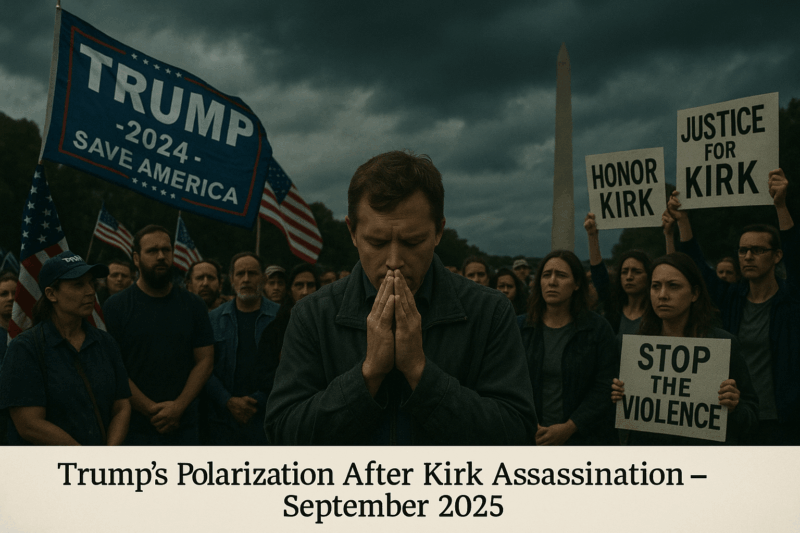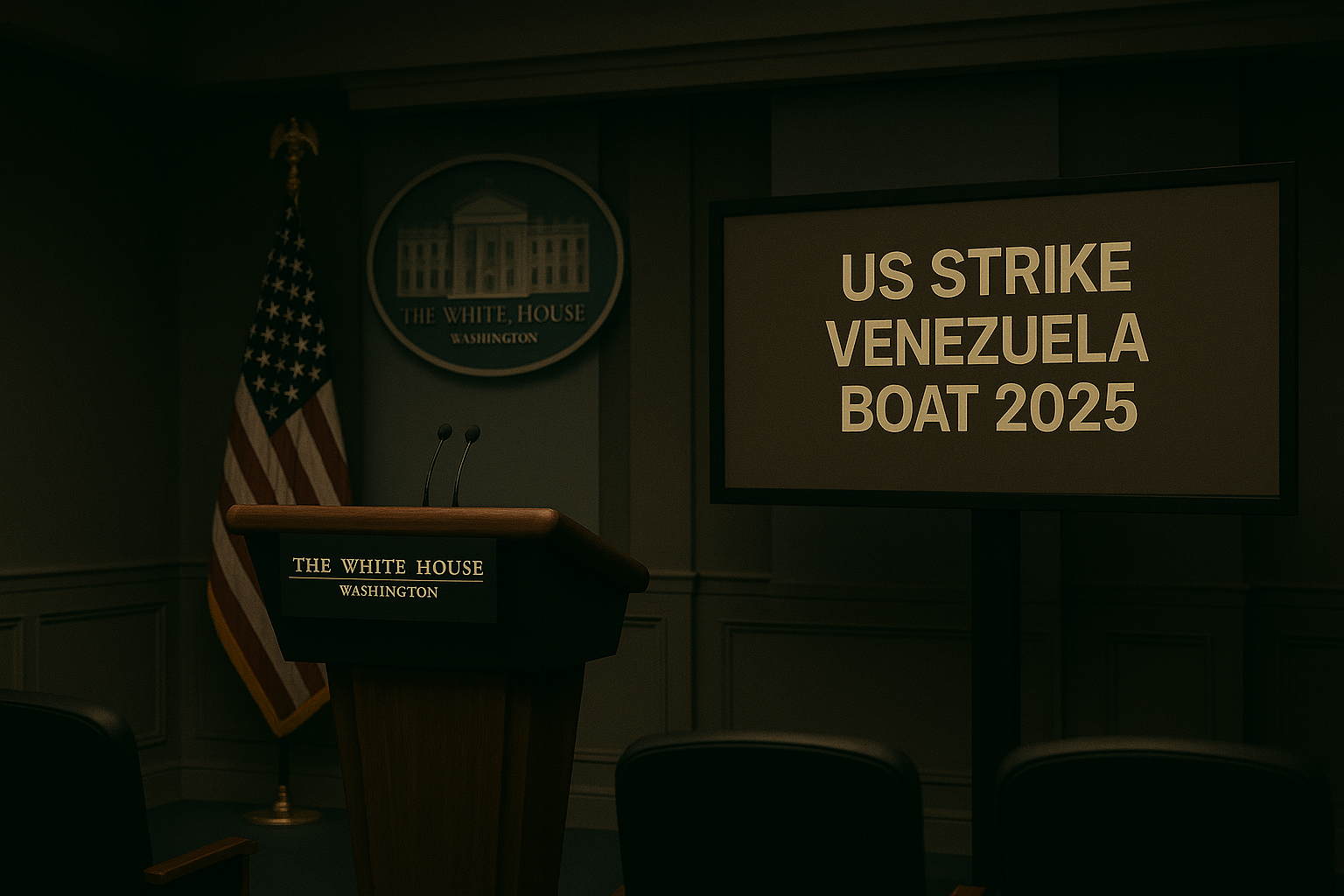A Nation Fractured: Trump’s Fiery Rhetoric Amid National Grief
In the shadowed halls of the White House, as America mourned the assassination of conservative activist Charlie Kirk on September 10, 2025, President Donald Trump stood before the nation with a message that began in sorrow but swiftly ignited fury. Praising Kirk as a “great American” and invoking divine comfort for his family, Trump’s Oval Office address quickly pivoted to blame the “radical left,” vowing retribution in a moment that could have united a grieving country. This wasn’t just a speech—it was a declaration of war against domestic “enemies,” deepening the chasms in an already polarized society. As families across red and blue states grapple with fear and loss, Trump’s refusal to heal underscores a presidency defined by division, leaving many to wonder: In this era of Trump unity polarization, who truly pays the price?
The Human Toll: Families and Communities Torn Apart by Rhetoric
The assassination of Charlie Kirk didn’t just claim one life—it ripped open wounds in countless others. Erika Kirk, the 31-year-old widow and mother of two young children, now faces a future without her husband, her grief compounded by a nation where political vitriol turns tragedy into ammunition. In conservative strongholds like Kirk’s hometown in Illinois, supporters hold vigils, their sorrow laced with anger at perceived leftist radicals. Meanwhile, in liberal enclaves like Washington state, educators and activists fear backlash—dozens fired or investigated for online comments, their livelihoods shattered by doxxing campaigns from figures like Laura Loomer.
For everyday Americans, the toll is visceral: Parents like those in mixed-political households in swing states report strained family dinners, where Trump’s “enemy from within” narrative breeds suspicion. A New Orleans firefighter, investigated for a deleted post calling Kirk’s death a “gift from God,” spoke anonymously of her family’s anxiety: “One comment, and suddenly we’re targets.” This polarization isn’t abstract—it’s eroding trust, with surveys showing 45% of Americans avoiding political talks with relatives, up 10% since 2024. In the wake of Kirk’s killing, communities mourn not just a man, but the loss of shared humanity, as Trump’s words fan flames that burn bridges between neighbors.
Facts and Figures: Measuring the Depth of Division
Trump’s response to Kirk’s assassination fits a pattern: In his first eight months of the second term, he’s issued 150 pardons, many to January 6 rioters who assaulted officers, while revoking Secret Service protection for critics like Dr. Anthony Fauci and former VP Kamala Harris. Post-Kirk, he deployed troops to Democrat-led cities like Washington, D.C., and threatened the same for Chicago and New Orleans, citing crime—despite FBI data showing violent crime down 10% nationwide in 2025.
Polarization metrics are alarming: Pew Research reports 62% of Republicans view Democrats as “immoral,” up from 47% in 2016; Democrats feel similarly at 55%. Threats against politicians surged 250% since 2017, per Capitol Police, with Kirk’s death—fired from a rooftop during a UVU speech—echoing the 2024 Trump attempt. Trump’s rhetoric? He called rivals “evil” 47 times in 2025 speeches, per Factba.se, and labeled NYC mayor candidate Zohran Mamdani a “communist.” Yet, his outrage is selective: Pardoning Capitol rioters who chanted “Hang Mike Pence,” while decrying leftist “fascist” labels—despite VP JD Vance once calling him “America’s Hitler.”
| Metric | 2016 | 2025 | Change |
|---|---|---|---|
| % Viewing Opposing Party as Immoral | 47% (R on D) | 62% (R on D) | +15% |
| Political Threats to Officials | 900/year | 2,500/year | +178% |
| Trump’s “Evil” Mentions in Speeches | 12 | 47 | +292% |
Broader Context: From Historical Compromises to Modern Warfare
Trump’s approach marks a stark departure from presidential norms. Past leaders like Reagan (post-attempt: “Honey, I forgot to duck”) or Obama (post-Gabby Giffords: “We can be better”) sought unity; Trump thrives on conflict, pardoning rioters while deploying troops domestically—a first since Reconstruction. This “wartime president” mindset, as Steve Bannon calls it, echoes McCarthyism’s red scares but with social media’s amplification: Miller’s posts on “radicalized” workers led to firings, per NPR, fueling a culture where dissent equals disloyalty.
Globally, parallels abound: Bolsonaro’s Brazil saw similar polarization fracture society, leading to his 2025 conviction. In the U.S., it exacerbates inequalities—disaster aid funneled to red states post-Hurricane Helene, while blue cities face military threats. Socially, it’s eroding democracy: Voter turnout dipped 5% in midterms amid fear, per Brennan Center. Boldly: Trump’s “retribution” isn’t leadership—it’s a cycle perpetuating violence, as seen in rising hate crimes (up 12% in 2024, FBI). Without a pivot, this divide risks a “cold civil war,” historians warn, where unity becomes a relic.
What Lies Ahead: Paths to Resilience or Further Fracture
Trump’s trajectory suggests escalation: Vows to probe leftist groups post-Kirk could mirror Nixon’s enemies list, but with AI surveillance. Yet, glimmers of hope exist—his voter-box “revenge” caveat hints at electoral focus. Communities are responding: Bipartisan vigils in Utah drew 5,000, fostering dialogue. Policy shifts like expanding mental health funding (proposed in NDAA 2026) could address radicalization roots.
Globally, models like Germany’s post-WWII reconciliation offer lessons: Mandatory civics education reduced polarization 20% in a decade. For America: Grassroots initiatives like Braver Angels’ workshops bridge divides, with participation up 30% in 2025. If Trump embraces unity—perhaps via a national address condemning all extremism—he could pivot; otherwise, experts predict deepened rifts, risking more violence. Resilience lies in collective action: Voters demanding bipartisanship, communities building bridges—proving America’s strength is in its mosaic, not its fractures.
Conclusion: In Trump’s Polarized Era, Unity Must Be Our Mission
As America reels from Charlie Kirk’s assassination, President Trump’s divisive stance—blaming the left while pardoning rioters—exemplifies a presidency that thrives on conflict, not compassion. In this Trump unity polarization, the human cost mounts: Fractured families, silenced voices, and a nation on edge. Yet, history shows unity heals—it’s time for bold leadership to lower the flames, lest division consume us all. For Kirk’s memory and our future, let’s demand better: A president for every American, not just the red ones.






